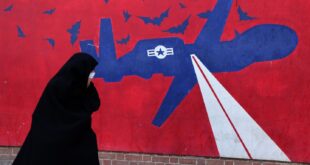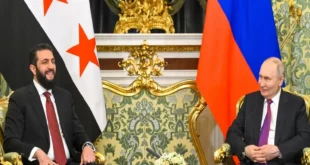 TEHRAN (FNA)- Former secretary of state Henry Kissinger said the US should negotiate directly with Iran over its nuclear program and other bilateral issues, and further criticized Washington’s policy for a regime change in Iran.
TEHRAN (FNA)- Former secretary of state Henry Kissinger said the US should negotiate directly with Iran over its nuclear program and other bilateral issues, and further criticized Washington’s policy for a regime change in Iran.
“One should be prepared to negotiate, and I think we should be prepared to negotiate about Iran,” Kissinger, who brokered the end of the 1973 Yom Kippur war and peace talks with the North Vietnamese, said in an interview with Bloomberg Television. Asked whether he meant the US should hold direct talks, Kissinger, 84, responded: “Yes, I think we should.”
There has been no response so far from Iran, he said.
“I’ve been in semi-private, totally private talks with Iranians,” he said. “They’ve put before them approaches that with a little flexibility on their part would, in my view, surely lead to negotiations.” He didn’t elaborate on who was engaged in the talks.
The Bush administration pursues a policy of diplomatic pressure on Iran at the United Nations and unilateral sanctions to weaken its access to the international banking system. There has been no direct contact between the US and Iran since the 1979 Iranian revolution, except for talks in Baghdad on Iraqi security between their ambassadors or technical experts.
Democratic presidential contender Senator Barack Obama has said he would meet with US adversaries such as the leaders of Iran without conditions.
Iran maintains its enrichment of uranium needed for nuclear power, while the US claims the project is cover for weapons development, although it has never had any corroborative evidence substantiating its allegations about Tehran.
“It’s not really the willingness to talk, it’s so far the inability to define what we are trying to accomplish,” Kissinger said. “The negotiations depend on a balance of incentives and penalties. Have we got those rights at every point? Not at every point.”
US Defense Secretary Robert Gates announced a few days ago that Admiral William Fallon would be stepping down as head of Central Command in the Persian Gulf, provoking criticism that Bush won’t tolerate dissent and feeding speculation his Iran policy could become more confrontational. Fallon once referred to tough White House rhetoric on Iran as “not helpful and not useful.”
Kissinger’s comments came on the eve of Friday’s parliamentary voting in Iran.
The Nobel Peace Prize winner said any direct talks between the US and Iran on issues such as the nuclear dispute would be most likely to succeed if they first involved only diplomatic staff and progressed to the level of secretary of state before the heads of state meet.
“If Iran is a nation and wants to be respected as a nation we will and must find a way to coexist with it,” he said.
“If Iran wanted a settlement to be reached, we would have an obligation on our part to come up with a reasonable position. I do not believe that regime change can be an objective of our foreign policy.”
The US is at loggerheads with Iran over Tehran’s independent and home-grown nuclear technology. Washington has laid much pressure on Iran to make it give up the most sensitive and advanced part of the technology, which is uranium enrichment, a process used for producing nuclear fuel for power plants.
Washington’s push for additional UN penalties contradicted the recent report by 16 US intelligence bodies that endorsed the civilian nature of Iran’s programs. Following the US National Intelligence Estimate (NIE) and similar reports by the IAEA head – one in November and the other one on Friday – which praised Iran’s truthfulness about key aspects of its past nuclear activities and announced settlement of outstanding issues with Tehran, any effort to impose further sanctions on Iran seemed to be completely irrational.
The February report by the UN nuclear watchdog, the International Atomic Energy Agency, praised Iran’s cooperation in clearing up all of the past questions over its nuclear program, vindicating Iran’s nuclear program and leaving no justification for any new UN sanctions.
Tehran says it never worked on atomic weapons and wants to enrich uranium merely for civilian purposes, including generation of electricity, a claim substantiated by the NIE and IAEA reports.
Iran has insisted it would continue enriching uranium because it needs to provide fuel to a 300-megawatt light-water reactor it is building in the southwestern town of Darkhovin as well as its first nuclear power plant in the southern port city of Bushehr.
Not only many Iranian officials, including President Mahmoud Ahmadinejad, but also many other world nations have called the UN Security Council pressure unjustified, especially in the wake of recent IAEA reports saying Iran had increased cooperation with the agency.
US President George W. Bush, who finished a tour of the Middle East last month has called on his Arab allies to unite against Iran.
But hosting officials of the regional nations dismissed Bush’s allegations, describing Tehran as a good friend of their countries.
Bush’s attempt to rally international pressure against Iran has lost steam due to the growing international vigilance, specially following the latest IAEA and US intelligence reports.
 Eurasia Press & News
Eurasia Press & News


